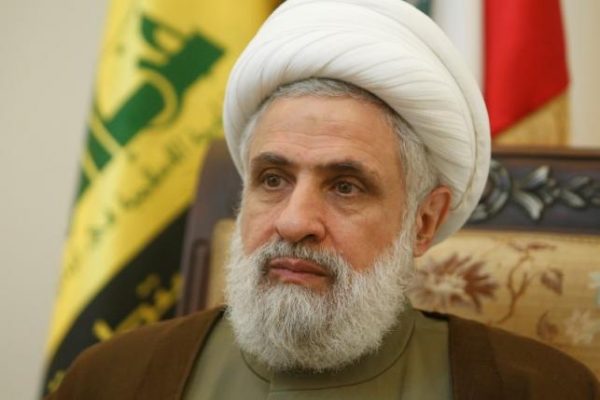
Hezbollah’s no. 2 ( Deputy Secretary General Sheikh Naim Qassem) stressed on Saturday that his party insists on passing a proportionality-based electoral law for the upcoming elections, Hezbollah’s mouthpiece al manar reported on Saturdaay
In a his speech at a ceremony marking the anniversary of the Birth of Sayyeda Fatima Al-Zahraa the Daughter of Prophet Muhammad , Qassem said that Hezbollah is ready to discuss with the other Lebanese political parties other proposals but that proportionality-based electoral law is the fairest for the whole nation.
In a related development , the head of Hezbollah parliamentary bloc MP Mohammad Raad, claimed that the Lebanese political parties are close to concluding an electoral law based on proportionality, asserting that the parliamentary elections will take place according to this agreement.
The Iranian backed Hezbollah has repeatedly called for an electoral law fully based on proportional representation but other political parties, especially the Future Movement, have rejected the proposal and argued that the party’s controversial arsenal of arms would prevent serious competition in regions where the Iran-backed party has clout.In 2013 Lebanese Forces and The Future Movement backed by the PSP agreed on a hybrid electoral law which calls for 54% of the MPs to be elected under the majoritarian winner-takes-all system and 46 % under the proportional representation system. This draft law was rejected by the Hezbollah-led March 8 opposition.
Also in 2013 Future Movement leader PM Saad Hariri rejected the electoral law that is based on proportional representation because there will be competition in some regions, but there cannot be any competition in other regions, because of the presence of Hezbollah weapons in them.
Hariri was referring to the 2009 election in the areas dominated by Hezbollah. According to the reports that surfaced back then Hezbollah gunmen prevented their rivals from voting and the results of the election showed it. On the other hand in the March 14 dominated areas several Hezbollah backed candidates won the election that was based on winner takes all electoral law.
In a proportional representation system Hezbollah will be able to gain more seats in the March 14 dominated areas but will not lose any seats in its dominated areas as long as it is allowed to keep its arms and use them internally for political gain, according to political analysts
The country has not voted for a parliament since 2009, with the legislature instead twice extending its own mandate.
The 2009 polls were held under an amended version of the 1960 electoral law and the next elections are scheduled for May 2017.

Leave a Reply
You must be logged in to post a comment.